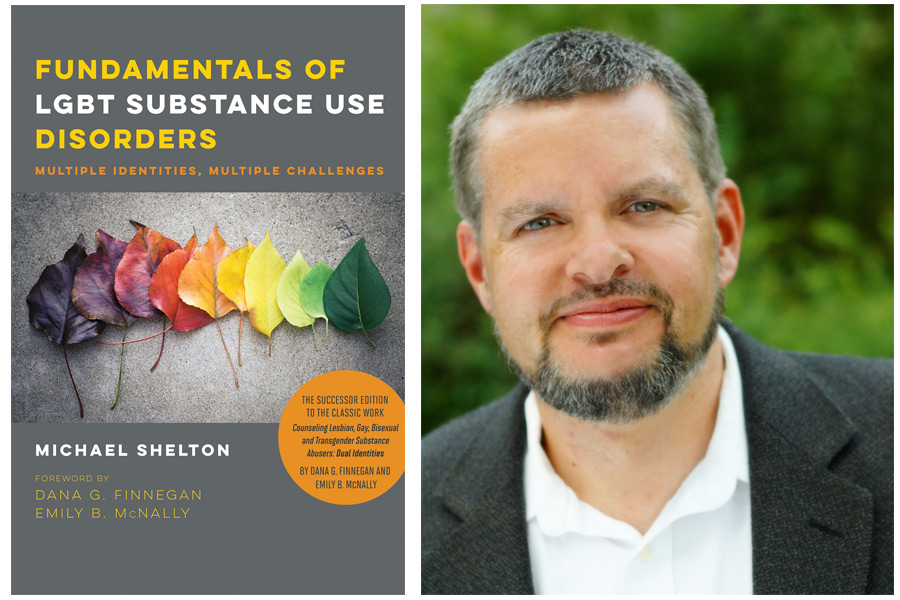Columbia University Press recently released “The Fundamentals of LGBT Substance Use Disorders,” a revision of the very first book on LGBT substance; it was considered a groundbreaking book when it was first written three decades ago by authors Dana Finnegan and Emily McNally.
The pair personally chose Michael Shelton, author of “Gay Men and Substance Abuse: A Basic Guide for Addicts and Those Who Care for Them” and board member for the Association of Lesbian, Gay, Bisexual, Transgender Addiction Professionals and Their Allies to revise the book.
Shelton noted that how society views and treats substance-abuse problems in the LGBT community has come a long way since the first edition of the book was published.
“The first book came out in 1987 and at that point there was almost nothing on this topic,” he said, noting that research was specifically lacking on bisexual and transgender individuals. “I’m so happy that now in 2017, while the research is dwarfed in comparison to that of heterosexual individuals, there is so much more we have to go on in treatment demographics. We have the basics now. We really do know how to help LGBT folks with substance disorders.”
But the landscape is still far from perfect.
For a lot LGBT individuals, finding help with substance-abuse problems can be complicated by issues like where they live — in the case of rural communities that are far from any treatment resources — or the idea that treatment facilities aren’t LGBT-sensitive.
“When I was on the board of NALGAP, part of its focus was to increase the number of treatment facilities catering to LGBT individuals,” Shelton said. “We realized that was going in the wrong direction. The money isn’t there and the interest isn’t there for a lot of folks. What we realized is that we need to shift our focus to every treatment facility in this country that works with substance abuse. They need to be competent in working with these folks. Obviously, we have a hell of a long way to go. Anybody in a rural area is going to have some major obstacles. Typically you have to travel an hour to get some kind of help. Thank God we live in Philadelphia because we do have so many resources in this city. Almost all the programs in the city, even if they are not LGBT-specific, they are competent in working with our folks. So I’m so happy for that because we can’t say that for the rest of the country.”
Shelton added that a lot of facilities may say they are well-versed in treatment for LGBT individuals with substance-abuse problems but that isn’t always the case.
“When I talk to the administrators and management of facilities, they say, ‘Yes, we are aware of this and we are focused on this issue and we’re going to prioritize these demographics,’” he said. “But when I talk to staff members, the folks that are actually giving counseling services, I often get a very different answer. They say, ‘We’ve got a long way to go and we’re not get any training on this, or the training we are getting is simply rudimentary.’ I think most places in Philadelphia are at least required to have training on LGBT demographics. Most of the LGBT folk that I talk to are not having horrendous experiences like I see in other parts of the country, particularly in rural areas.”
Shelton also said that the Affordable Care Act, which the GOP is working hard to eliminate, was a good thing for people seeking help with substance-abuse problems.
“So many LGBT people who did not have insurance were able to access mental-health treatment,” he said. “If that does get cut, that could have an impact on the availability of people to get services.”
“The Fundamentals of LGBT Substance Use Disorders: Multiple Identities, Multiple Challenges” is available now. For more information, visit https://cup.columbia.edu/book/fundamentals-of-lgbt-substance-use-disorders/9781939594112.

